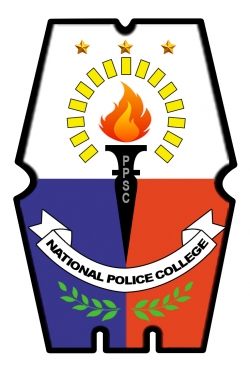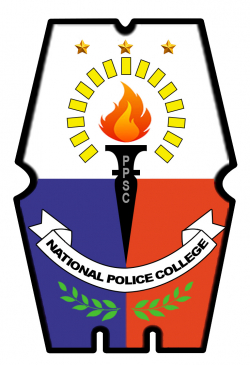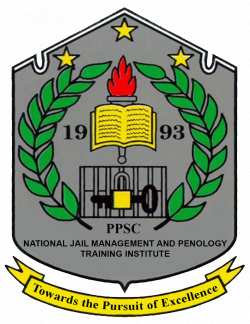A CASE STUDY OF DISMMISSED CASES OF VIOLITION OF REPUBLIC ACT 9165 OTHERWISE KNOWN AS THE COMPREHENSIVE DANGEROUS DRUGS ACS OF 2002 IN GERONA, TARLAC

Type
Thesis
Authors
PCPT JAMES N BUGAYONG PCPT ARNEL A CERA PCPT JOSEPH B MORDEN ( PCPT RANDIE P NIEGOS PCPT WILSON T TACPAL PCPT ELIJAH EDISON R YUMUL )
Category
PSOAC
[ Browse Items ]
Abstract
Part 1. CASE OF STUDY
Introduction
The prevalence of illegal drug use in the Philippines is lower than the global average, according to the United Nation Office on Drugs and Crime (UNODC) President Rodrigo Duterte has claimed that the country could become a “narco-state”. Two of the most used and valuable illegal drugs in the country are methamphetamine hydrochloride (known locally as shabu) and marijuana. In 2012, the United Nations said the Philippines had the highest rate of methamphetamine use in East Asia, and according to a U.S. State department report, 2.1 percent of Filipinos aged 16 to 64 use the drug based on 2008 figures the Philippines Dangerous Drugs Board. As of 2016, the United Nation Office of Drugs and Crime report that 1.1 percent of Filipinos aged 10 to 69 use the drug.
Drug syndicates have been producing methamphetamine in small-scale and kitchen-type laboratories to avoid detection by the Philippine authorities since 2010. Usually drug syndicates rent warehouse for uses as drug laboratories. These syndicates have moved towards renting houses in private subdivisions, condominiums and apartments to be used as bases form their illegal drug production. Private properties are becoming more fordable to drug syndicates as sites of illegal drug production. Methamphetamine remains more feasible to sell in the Philippines than cocaine, a more costly illegal drug.
Owing to its geographical location, international drug syndicates use the Philippines as a transit hub for the illegal drug trade. Some local drug syndicates are also involved in the international illegal drug trade, utilize drugs mules to transport small amounts of illegal drugs to others countries. Some overseas Filipino workers have been utilized by drug syndicates as drug mules, mainly women, are sent to China, were drug convicts will face execution via lethal injection. The Ninoy Aquino International Airport has been identified as a favorable illegal drug trafficking hub.
Some Filipinos choose to be involved in drug trafficking due to the promise of a high income. Some still participate in such illicit activity because they are forced by certain circumstances. There were reports in the past that some Filipinos, usually women, were forced and blackmailed by drug syndicates to work as a drug couries, and if they refused, their family’s safety would be compromised
A Manila-based firm, Pacific Strategies & Assessment, identified the Philippines as, “not only a transshipment point, but also a key producer of synthetic a drugs for all of Asia” in a report made in 2009.
In December 2013, the Philippines National Police – Anti-Illegal Drugs Special Operation Task Force and the Philippines Drug Enforcement confirmed reports that the Mexican Sinaloa Cartel had started operation in the country. Methamphetamine has also been manufactured in North Korea and brought into the Philippines.
After winning the 2016 Presidential Election, one of the priority program of President Rodrigo Duterte is the campaign against illegal drugs what is commonly known as “war on drugs”. The war on Drugs refers to the drug policy of the Philippines government which is aimed to eradicate the production, use, sale, and transport of illegal drugs in the Philippines. PRRD directed the Philippine National Police (PNP) and Philippines Drug Enforcement Drug Agencies (PDEA) to intensity the product of the Anti-Illegal Drugs Enforcement Drugs Operation within the country. Such directive lead to the arrest of numerous drug personalities and filling of cases against them. This drug war even resulted in the deaths of some suspects during the conduct of the operation. During the duration of the war on drugs, it revealed that the only ordinary citizens were involved in illegal drugs activities but some were high profile personalities such as businessman, politicians and government officers.
Relatedly, the Anti-Illegal Drug Operations led to the filling of thousands of drug cases against the violators of Republic Act 165or the Dangerous Drugs Act of 2002 nationwide. From July 2016 to August 30, 2020, Tarlac Police Provincial Office (TPPO), Police Regional Office 3 was able to conduct anti-illegal drug operations with a total of three thousand nine hundred thirty-one (3,931) suspects and subsequent filling of cases of Violation of RA 9165 against them.
However, the success of this Anti-Illegal Drug policy does not end after the filling of cases against the arrested suspects but an Anti-illegal Drug Operation can be called a success if the court renders its decision of the case imposing the appropriate penalty against the violators of the law.
Introduction
The prevalence of illegal drug use in the Philippines is lower than the global average, according to the United Nation Office on Drugs and Crime (UNODC) President Rodrigo Duterte has claimed that the country could become a “narco-state”. Two of the most used and valuable illegal drugs in the country are methamphetamine hydrochloride (known locally as shabu) and marijuana. In 2012, the United Nations said the Philippines had the highest rate of methamphetamine use in East Asia, and according to a U.S. State department report, 2.1 percent of Filipinos aged 16 to 64 use the drug based on 2008 figures the Philippines Dangerous Drugs Board. As of 2016, the United Nation Office of Drugs and Crime report that 1.1 percent of Filipinos aged 10 to 69 use the drug.
Drug syndicates have been producing methamphetamine in small-scale and kitchen-type laboratories to avoid detection by the Philippine authorities since 2010. Usually drug syndicates rent warehouse for uses as drug laboratories. These syndicates have moved towards renting houses in private subdivisions, condominiums and apartments to be used as bases form their illegal drug production. Private properties are becoming more fordable to drug syndicates as sites of illegal drug production. Methamphetamine remains more feasible to sell in the Philippines than cocaine, a more costly illegal drug.
Owing to its geographical location, international drug syndicates use the Philippines as a transit hub for the illegal drug trade. Some local drug syndicates are also involved in the international illegal drug trade, utilize drugs mules to transport small amounts of illegal drugs to others countries. Some overseas Filipino workers have been utilized by drug syndicates as drug mules, mainly women, are sent to China, were drug convicts will face execution via lethal injection. The Ninoy Aquino International Airport has been identified as a favorable illegal drug trafficking hub.
Some Filipinos choose to be involved in drug trafficking due to the promise of a high income. Some still participate in such illicit activity because they are forced by certain circumstances. There were reports in the past that some Filipinos, usually women, were forced and blackmailed by drug syndicates to work as a drug couries, and if they refused, their family’s safety would be compromised
A Manila-based firm, Pacific Strategies & Assessment, identified the Philippines as, “not only a transshipment point, but also a key producer of synthetic a drugs for all of Asia” in a report made in 2009.
In December 2013, the Philippines National Police – Anti-Illegal Drugs Special Operation Task Force and the Philippines Drug Enforcement confirmed reports that the Mexican Sinaloa Cartel had started operation in the country. Methamphetamine has also been manufactured in North Korea and brought into the Philippines.
After winning the 2016 Presidential Election, one of the priority program of President Rodrigo Duterte is the campaign against illegal drugs what is commonly known as “war on drugs”. The war on Drugs refers to the drug policy of the Philippines government which is aimed to eradicate the production, use, sale, and transport of illegal drugs in the Philippines. PRRD directed the Philippine National Police (PNP) and Philippines Drug Enforcement Drug Agencies (PDEA) to intensity the product of the Anti-Illegal Drugs Enforcement Drugs Operation within the country. Such directive lead to the arrest of numerous drug personalities and filling of cases against them. This drug war even resulted in the deaths of some suspects during the conduct of the operation. During the duration of the war on drugs, it revealed that the only ordinary citizens were involved in illegal drugs activities but some were high profile personalities such as businessman, politicians and government officers.
Relatedly, the Anti-Illegal Drug Operations led to the filling of thousands of drug cases against the violators of Republic Act 165or the Dangerous Drugs Act of 2002 nationwide. From July 2016 to August 30, 2020, Tarlac Police Provincial Office (TPPO), Police Regional Office 3 was able to conduct anti-illegal drug operations with a total of three thousand nine hundred thirty-one (3,931) suspects and subsequent filling of cases of Violation of RA 9165 against them.
However, the success of this Anti-Illegal Drug policy does not end after the filling of cases against the arrested suspects but an Anti-illegal Drug Operation can be called a success if the court renders its decision of the case imposing the appropriate penalty against the violators of the law.
Number of Copies
1
| Library | Accession No | Call No | Copy No | Edition | Location | Availability |
|---|---|---|---|---|---|---|
| NPC Library | 676577 | 1 | Yes |




